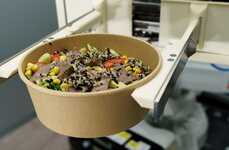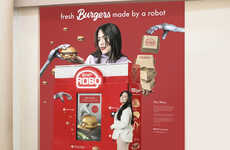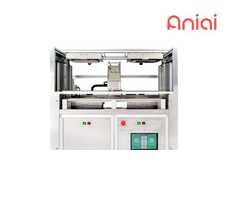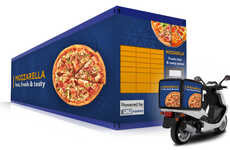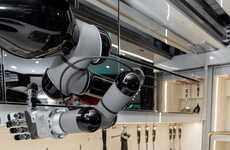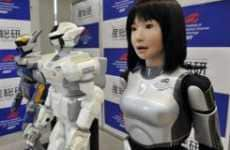
Japanese Robot Chef Makes Octopus Balls
References: technovelgy
Science fiction fans have been forever awaiting tasty treats prepared by tireless automatons. Finally, the technology is here. A robot chef, created by Toyo Riki of Japan, cooked octopus balls autonomously at the Osaka Museum of creative industries.
Implications - Robotics replacing humans for jobs is often a controversial subject. Scientists are always finding ways to make tasks easier at hand with technology progressing rapidly. While it's cost-efficient without the hassle of giving out paychecks, it appears that society in general is relying too much on mechanics. Whether or not businesses decide to replace people with robots has yet to be determined.
Implications - Robotics replacing humans for jobs is often a controversial subject. Scientists are always finding ways to make tasks easier at hand with technology progressing rapidly. While it's cost-efficient without the hassle of giving out paychecks, it appears that society in general is relying too much on mechanics. Whether or not businesses decide to replace people with robots has yet to be determined.
Trend Themes
1. Autonomous Cooking - The trend of creating robots for autonomous cooking presents opportunities for disruption in the food industry by automating cooking processes, reducing costs, and improving consistency.
2. Robotic Chef Assistants - The trend of creating robotic chef assistants presents opportunities for disruption in the hospitality industry by automating repetitive and mundane tasks, freeing up human chefs to focus on creativity and innovation.
3. AI-powered Culinary Innovation - The trend of using AI to power culinary innovation presents opportunities for disruption in the food industry by enhancing recipe development, personalizing food experiences, and creating new flavors and textures.
Industry Implications
1. Food Industry - The food industry can benefit from disruptive innovation opportunities by leveraging autonomous cooking, robotic chef assistants, and AI-powered culinary innovation to reduce costs, increase efficiency and improve the overall dining experience.
2. Hospitality Industry - The hospitality industry can benefit from disruptive innovation opportunities by incorporating robotic chef assistants to automate repetitive tasks and improve efficiency, freeing up hospitability workers to focus on creative and innovative tasks.
3. Robotics Industry - The robotics industry can benefit from disruptive innovation opportunities by creating more advanced robots capable of cooking more complex dishes autonomously and collaborating with human chefs to optimize the cooking process.
1.5
Score
Popularity
Activity
Freshness

